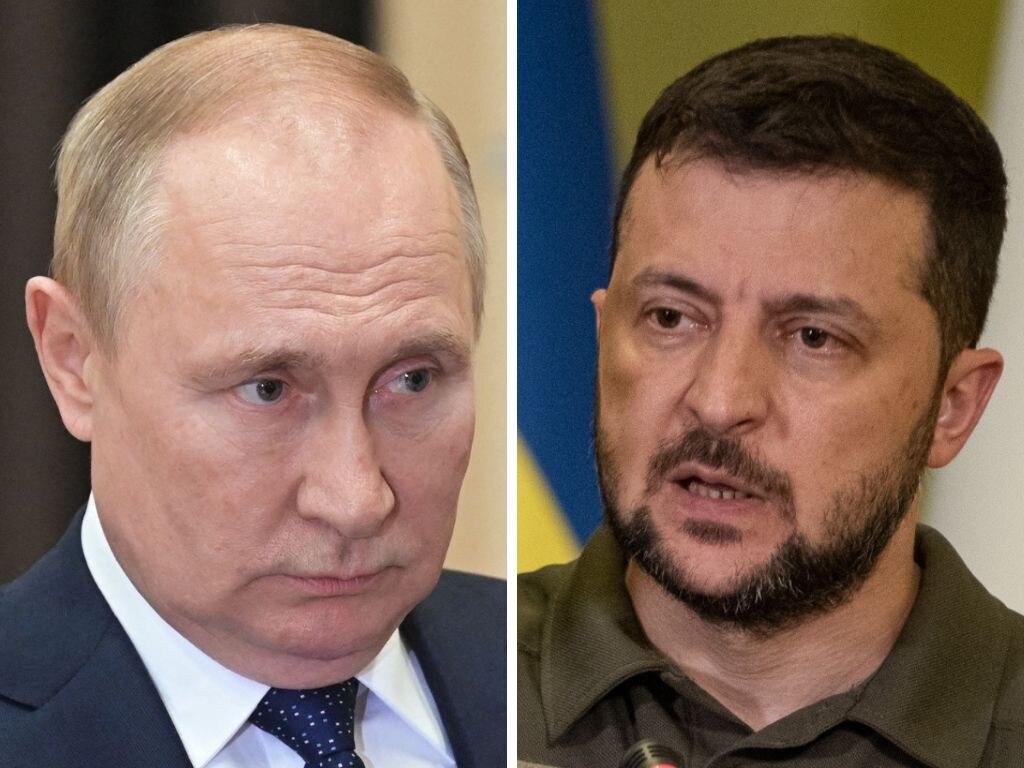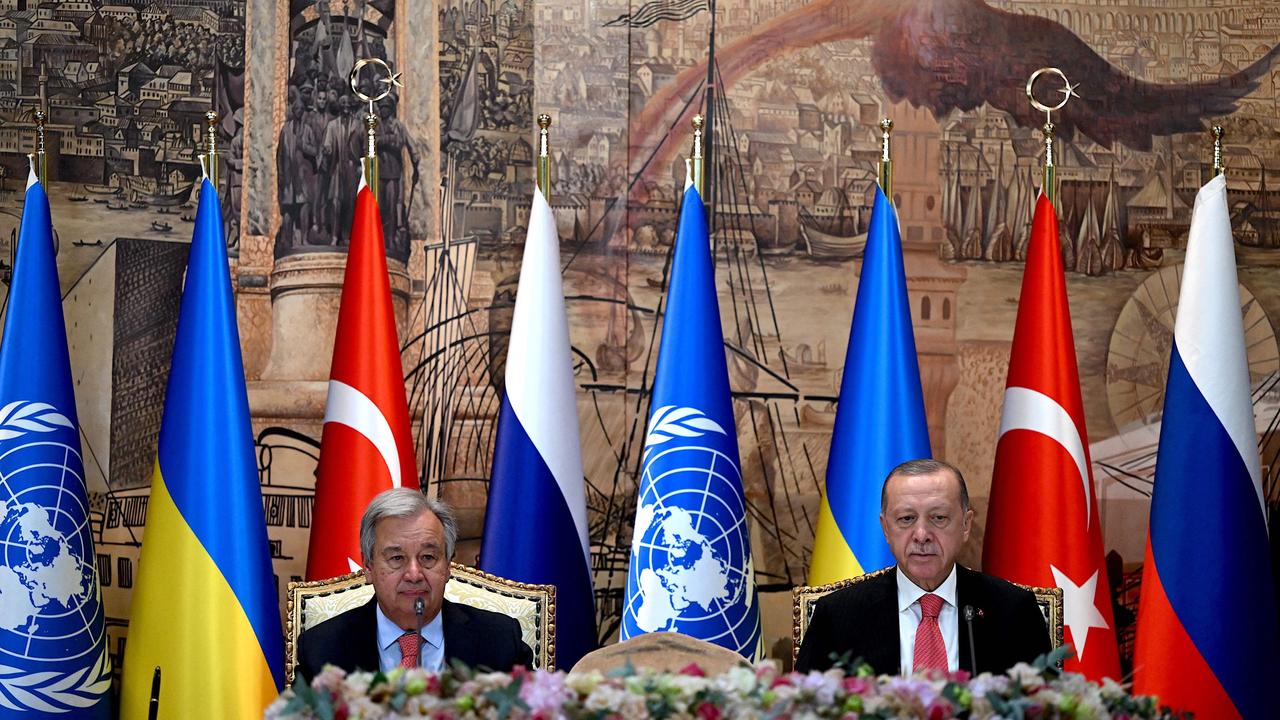
This article is more than
3 year oldRussia and Ukraine have reached a deal to resume grain exports through the Black Sea, in a move that could avert a global food crisis.
Russia has blockaded Black Sea ports since its invasion of Ukraine, cutting off supplies and sending grain prices soaring.
Millions of the poorest people in the world rely on the grain shipments to survive.
The UN Secretary General said a deal was reached early on Saturday morning (AEST).

Russian Defence Minister Sergei Shoigu and Ukrainian Infrastructure Minister Oleksandr Kubrakov each signed separate but identical agreements with UN and Turkish officials.
Ukrainian officials said they did not want to put their name on the same document as the Russians because of the five-month war.
Diplomats expect grain to start fully flowing for the first time since Russia’s invasion of its Western-backed neighbour by the middle of August.
“Today, there is a beacon on the Black Sea - a beacon of hope, a beacon of possibility, a beacon of relief,” UN Secretary General Antonio Guterres said as the deal was signed after months of laborious negotiations that threatened to break down several times.
“It will bring relief for developing countries on the edge of bankruptcy and the most vulnerable people on the edge of famine,” Guterres said.
The United Nations estimates that an additional 47 million people began to face “acute hunger” as a direct consequence of the war.
Turkish President Recep Tayyip Erdogan - a key player in the negotiations who has good relations with both Moscow and Kyiv - said he hoped the deal would pave the way for eventual peace in Ukraine.
“This joint step we are taking with Ukraine and Russia will hopefully revive the path to peace,” the Turkish leader said.
The war is being fought across one of Europe’s most fertile regions by two of the world’s biggest producers of grain.

But Russian warships and Ukrainian mines laid across the sea to avert an amphibious assault have blocked exports and left up to 25 million tonnes of wheat and other grain in danger of rotting in ports and silos.
UN officials say it was quickly decided that de-mining the area would take too long to relieve the threat of starvation spreading to some of the poorest parts of the world.
The deal agreed through UN and Turkish mediation establishes safe corridors along which Ukrainian ships can come in and out of three designated Black Sea ports in and around Odessa.
Both sides also pledged not to attack ships on the way in or out. Ukrainian presidential adviser Mykhaylo Podolyak warned Russian breaches of the deal and incursions around Ukraine’s ports would be met with “an immediate military response”.
A joint command and control centre will be set up in Istanbul to oversee smooth operations and resolve disputes.
But all the pieces may not start coming together until next month. UN officials say Ukraine may send out a few ships at first to make sure the deal works.
“We’re talking about a few weeks before we’ll see a proper implementation of vessels going in and out,” one UN official said.